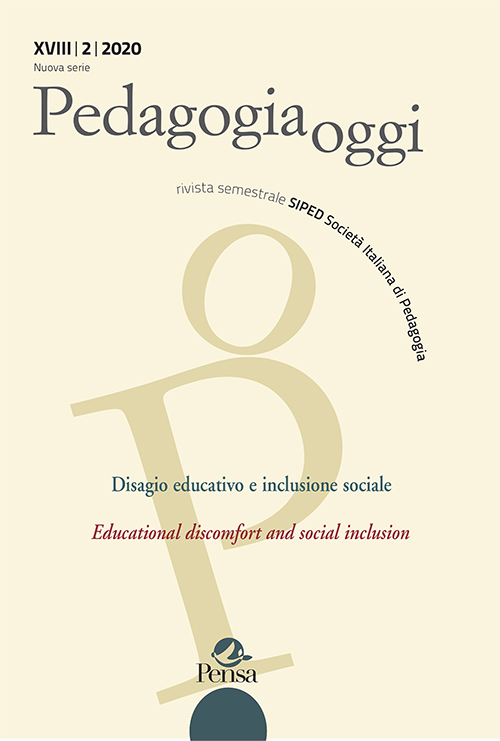Special Education in Italy: Ernesto and Decio Scuri’s contribution to the education of the deaf and dumb
DOI:
https://doi.org/10.7346/PO-022020-09Abstract
Ernesto (1854-1927) and Decio (1905-1980) Scuri, father and son, are prominent figures in the history of Italian deaf and dumb education in the period spanning the nineteenth and twentieth centuries. The former was an educationalist who established the scientific bases for corrective education via a vast body of writings and the publication of a magazine entitled “Rassegna di pedagogia e igiene per l’educazione dei sordomuti e la profilassi dei sordomutismi” [Pedagogy and Health Review for the Education of Deaf-Mutes and the Treatment of Deafness and Dumbness]. The latter, an ear, nose and throat doctor, distinguished himself by applying new audiological techniques to the instruction and linguistic training of deaf people.
This paper focuses on the theoretical models that informed the Scuris’ work, as well as on their exchanges with Italian and international experts in their field: the Turin Institute for the Deaf has come into possession of the section in their family library devoted to deafness, facilitating analysis of Ernesto’s and Decio’s sources and, in parallel, the reconstruction of their scientific correspondence.




